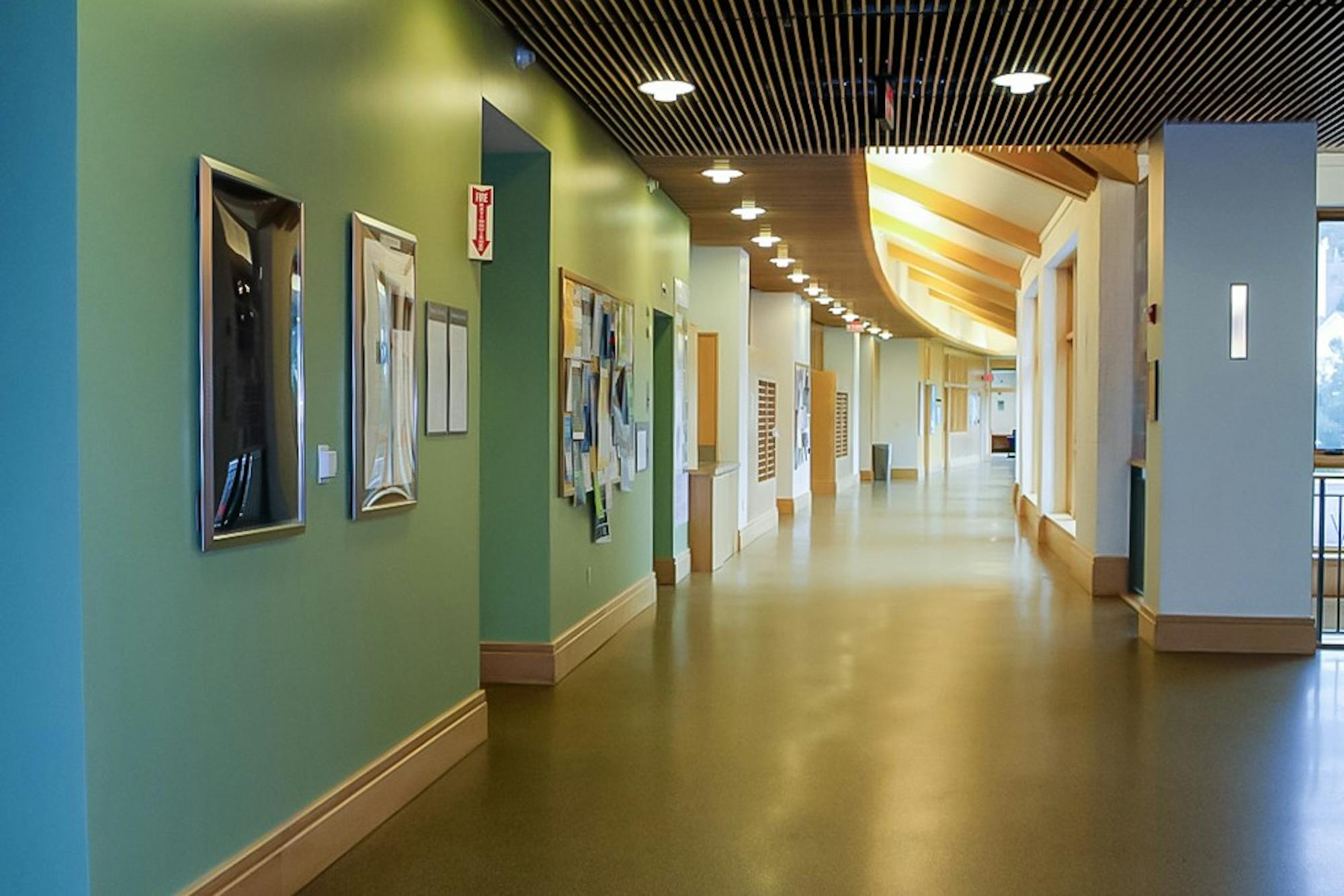On March 31, Aditi Deokar ’25, Caroline Conway ’24 and Gavin Fry ’25 won Goldwater Scholarships, making them three out of the 413 college sophomores and juniors nationwide to receive the award, which supports undergraduate research in the natural sciences, engineering and mathematics. According to the scholarship website, the program started in 1986 and honors late Sen. Barry Goldwater, awarding Goldwater scholars up to $7,500 per academic year.
Aditi Deokar
Deokar won the award for her work under the mentorship of Geisel microbiology and immunology professor Yina Huang to discover a more effective treatment for the autoimmune disease lupus, which Deokar was diagnosed with as a child. She explained that lupus lacks widespread recognition, despite being the tenth leading cause of death among young women.
“Everyone has a mechanism to keep their immune systems in check,” Deokar said. “But lupus patients have reduced numbers of regulatory T-cells, so I was working to create a treatment that would increase [them] to give the body a boost.”
However, Deokar said her focus shifted to address the root of the problem: killing the plasma cells which create the antibodies that cause patients’ immune systems to attack their cells. She said her treatment aims to isolate the antibodies causing the condition, resulting in fewer side effects compared to the current drugs, which sometimes attack healthy cells.
Deokar said that the Goldwater Scholarship will help her on her path to becoming a pediatric rheumatologist, a specialty that suffers from shortages due to extensive training and minimal pay.
“[The Goldwater Scholarship] has given me a lot of confidence … because I’m trying to start this whole new [treatment] that no one else has,” Deokar said.
Along with her desire to spare lupus patients the long drives to out-of-state rheumatologists, by making the new treatment more accessible, Deokar said she believes that clinical experience will enable her to tailor her research toward the interests of patients.
“It’s important to have that clinical perspective because you can see what patients need instead of making a treatment in a lab, hoping it’s useful to a patient,” Deokar said. “There are so many levels between basic research and clinical trials, so it can often feel disconnected, and I want to help bridge that.”
Gavin Fry
Fry studies severe weather events impacting marginalized communities in the mid-South region of the United States under earth sciences professor Erich Osterberg. The mid-South is a densely populated area with a high percentage of low-income residents, many of whom are vulnerable to weather conditions due to their socio-economic status.
Fry said he has long held an interest in weather, from his childhood fascination with thunderstorms to his high school internship for the National Weather Service in Memphis, Tennessee.
“Ever since I was a kid, I grew up drawing little weather maps on my high chair with crayons and forecasting the weather and looking outside at thunderstorms,” Fry said. “So from a young age, I’ve always been interested in weather.”
According to Fry, the scholarship enables him to anticipate the impact of weather events based on past case studies, while incorporating new geographic patterns and social vulnerabilities.
“[The project] has all sorts of policy implications for helping people,” Fry said. “I’m very interested in the science — the basic research — but I want to end up acting as a liaison between the scientific community and government decision-makers because the science is great, but it’s not about the science. Our science is only as good as our ability to communicate and put it into practice.”
In the future, Fry said he hopes to work for the National Oceanic and Atmospheric Administration as a pathway towards a more administrative position that will allow him to influence policy in Washington D.C., which he labeled his “ultimate goal.”
In addition, Fry said that the scholarship is important to him as a first-generation and low-income college student. Although he applied to Dartmouth without much thought, he is discovering that he is “on an even playing field with everyone else and can chase the same opportunities.”
Caroline Conway
Conway works at the Social Computation Representation and Prediction Laboratory with psychological and brain sciences professor Mark Thornton. Through behavioral experiments, fMRIs and text analysis, Conway works to understand how people form their knowledge about their social world.
According to Thornton, the Collaborative Theory of Mind explores “how people work together to understand people’s minds.” The lab’s researchers collect data on how people process information in social interactions. In one instance, the lab has studied individuals watching movies that include social stimuli to understand their reactions to facial expressions, body language and tone of voice, he added.
The research results will have various applications, ranging from conversations with friends and family members to therapeutic situations, Thornton said. He noted that “understanding how others converge on consensus views can help people generate insights [about their interpersonal relationships].”
Thornton described Conway’s participation in different parts of the research, which includes programming the paradigms with which subjects interact, helping perform quality checks, using machine learning to analyze audio and video data and evaluating aspects of the data that machines cannot pick up yet, such as moments of conflict between different characters.
Conway declined to comment.




